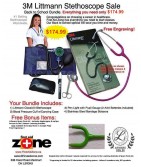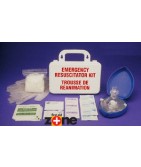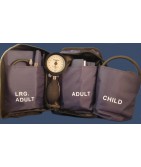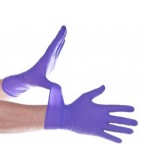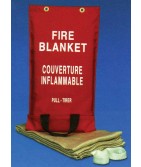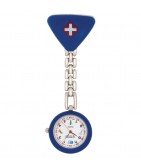 Whenever anyone talks about emergency first aid, the focus should always be on the word “emergency.” Whether it is an illness or an injury, a life or limb may be at stake and there’s really no time to lose. Here are 9 things you need to know about emergency first aid.
Whenever anyone talks about emergency first aid, the focus should always be on the word “emergency.” Whether it is an illness or an injury, a life or limb may be at stake and there’s really no time to lose. Here are 9 things you need to know about emergency first aid.
1) Time is of the Essence
You already knew that, but it bears repeating. You don’t want to panic and you don’t want to rush, but you do want to move swiftly through all of the first aid actions you’ve learned that will help the situation.
2) You Can Never Know Too Much
If you feel like you have a pretty good handle on the emergency first aid and the opportunity to learn more comes up, take advantage of it. Always remember that what you know and how quickly you’re able to apply it could be the difference between someone’s life or death.
3) Survey the Scene
Even though you don’t have much time, it’s still a good idea to give a quick check to your surroundings. Look for any potential hazards, especially if you are on the scene of an accident. It doesn’t make any sense to make yourself a casualty while you’re in the process of trying to save someone else.
4) Communicate Clearly
When you are in the process of administering emergency first aid, be sure to speak clearly and loud enough for everyone involved to hear you. Give clear instructions and ask questions clearly and concisely. If you’re in a situation where the person isn’t responding, shake their shoulders gently and look for any sign of life.
5) Remember Your ABC’s
After an accident or serious injury, one of the main aspects of emergency first aid is ‘ABC’ or “airway”, “breathing”, “circulation”. The airway must be clear of foreign objects, the person must be breathing on their own, and if they aren’t breathing, CPR must be performed to try and get them breathing again. Ideally, only experienced first aiders should administer CPR.
6) The Recovery Position
The recovery position is how you place the injured person if they are breathing and there aren’t any obvious head or neck injuries. For the recovery position, roll them over on their side and lift the chin forward so the airway remains open. From there, you place their hand under their cheek and they won’t be able to roll forward or backward.
7) Call for Help
Even if you know your stuff and seem to have the situation under control, call for help when you can or ask someone else to call. In all likelihood, an emergency situation will require more treatment, so do what you can and then call.
8) You Are Protected
Many people are reluctant to help someone in an emergency situation for fear of doing something wrong and incurring a lawsuit later on. However, there is a Good Samaritan Act in Canada that protects you from liability except in instances of gross negligence.
9) Remain Diligent
One last thing you need to know about emergency first aid is that you should remain diligent throughout the process. Even if it seems as though you are losing the battle, keep going because your efforts could mean the difference between a life continuing on or ending.
Being prepared for emergency first aid situations is key. With the right training and the right first aid equipment, you can be ready for an emergency situation. The First Aid Zone offers a wide range of emergency medical supplies and first aid manuals so you can be prepared.







